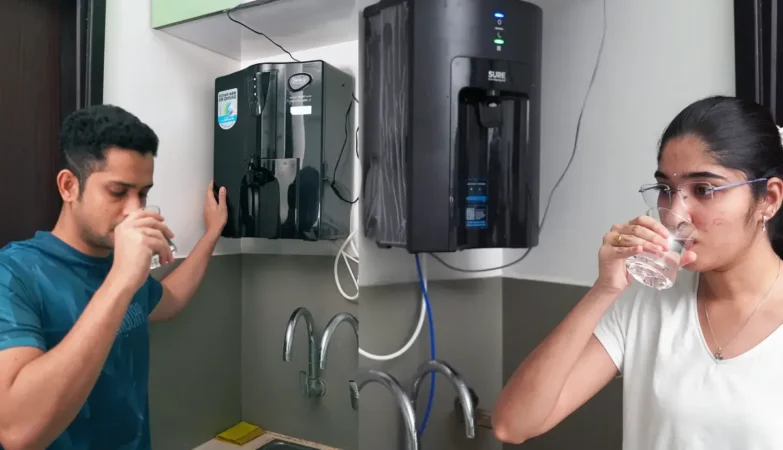For patients with end-stage or critical kidney conditions, kidney transplantation serves as a transformative, life-saving solution. The best kidney transplant hospital like BLK-Max Super Speciality Hospital utilises advanced technologies and a patient-focused approach to deliver optimal outcomes and long-term well-being. In this guide, let’s understand some of the most serious kidney conditions that might necessitate a transplant, emphasising the importance of early diagnosis, timely interventions, and access to advanced medical care from reputed hospitals.
Common Serious Kidney Conditions
Serious kidney conditions often progress silently, making it crucial to recognise their signs early. Below are some of the conditions that might require a kidney transplant:
1. Chronic Kidney Disease (CKD)
CKD is a progressive condition where the kidneys slowly lose their ability to filter and remove waste and toxins from the bloodstream. It develops gradually, often going unnoticed until significant damage has occurred, making early diagnosis and management essential.
- Causes: Diabetes and hypertension are among the leading causes of CKD, accounting for nearly two-thirds of all cases globally. Other causes include glomerulonephritis, recurrent kidney infections, autoimmune disorders, and genetic predispositions. These conditions place excessive strain on the kidneys, leading to irreversible damage over time.
- Symptoms: Early signs may include persistent fatigue, swelling in the ankles and feet, high blood pressure, changes in urination patterns (e.g., foamy or dark-coloured urine), and unexplained weight loss.
Identifying CKD in its early stages is critical to slowing its progression. Lifestyle modifications, such as adopting a healthy diet, staying physically active, and controlling blood sugar levels, can make a significant difference. In advanced stages, dialysis or kidney transplantation becomes necessary to restore normal function and improve quality of life.
2. End-Stage Renal Disease (ESRD)
ESRD represents the final stage of CKD, where kidney function falls below 10-15% of normal capacity. At this stage, the kidneys can no longer perform their essential functions, such as filtering waste, balancing electrolytes, and regulating blood pressure.
- Challenges: Patients with ESRD often rely on dialysis, a process that mechanically filters waste and excess fluids. Although life-sustaining, dialysis can significantly disrupt daily routines, impact mental health, and lead to complications such as infections or cardiovascular problems.
- Why Transplantation Is Essential: A kidney transplant offers a more permanent solution, freeing patients from dependency on dialysis, improving energy levels, and enhancing overall health and longevity.
3. Polycystic Kidney Disease (PKD)
PKD is a genetic disorder characterised by the development of fluid-filled cysts in the kidneys. These cysts grow over time, causing the kidneys to enlarge and lose functionality. In some cases, PKD may also affect other organs, such as the liver or pancreas, and increase the risk of cardiovascular complications.
- Symptoms: Patients often experience persistent abdominal or flank pain, high blood pressure, frequent urinary tract infections, blood in the urine, and kidney stones. Symptoms typically become more severe as the condition progresses.
- Complications: Left untreated, PKD can lead to kidney failure, necessitating dialysis or transplantation. Additionally, it may increase the risk of aneurysms, liver cysts, and chronic pain.
How Leading Hospitals Address PKD: Hospitals specialising in kidney transplants provide personalised treatment plans, incorporating genetic counselling, pre-transplant monitoring, and minimally invasive surgical techniques to manage complications. Post-transplant care includes ongoing monitoring to prevent cyst recurrence and ensure long-term success.
4. Acute Kidney Injury (AKI)
Unlike CKD, AKI develops suddenly and is often triggered by factors such as trauma, severe infections (e.g., sepsis), or exposure to toxic substances (e.g., certain medications or industrial chemicals). The condition is characterised by a rapid decline in kidney function, which, if untreated, can lead to life-threatening complications.
- Treatment Needs: Immediate medical intervention is crucial to stabilise the patient, manage underlying causes, and restore kidney function. In severe cases, where kidney damage is irreversible, transplantation becomes the most viable option.
- Prognosis: Patients recovering from AKI with a transplant often experience better outcomes compared to prolonged dependency on dialysis. Early intervention and close monitoring are essential to prevent recurrence and ensure successful recovery.
Leading hospitals like BLK-Max Super Speciality Hospital are equipped to handle AKI cases and focus on rapid diagnosis, advanced surgical techniques, and comprehensive post-transplant care. Their personalised approach to each case minimises complications and maximises the chances of successful recovery.
Know more about : 7 Things To Avoid For a Healthy Kidney
Conclusion
Kidney transplantation represents hope and a renewed lease on life for patients battling severe kidney conditions. The best kidney transplant hospitals like BLK-Max Super Speciality Hospital are at the forefront of innovation, utilising advanced technologies such as paired kidney exchanges, living-donor programs, and immunosuppressive therapies to ensure optimal outcomes. The top medical institutions prioritise medical expertise and holistic care, supporting patients and their families throughout the transplant journey.
If you or a loved one is dealing with a serious kidney condition, seeking care at a leading hospital can pave the way for a healthier, brighter future. Early consultation with specialists can help identify the best treatment options tailored to your unique needs, offering a pathway to better health and improved quality of life.











